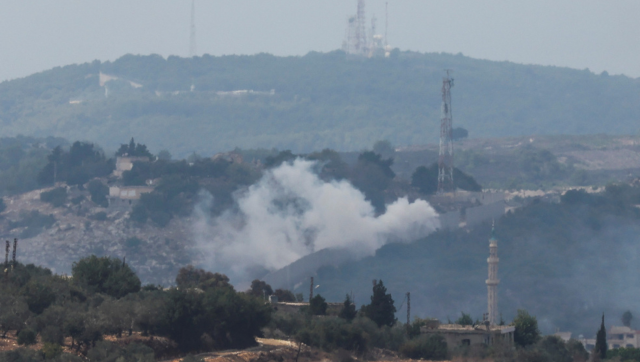Since Hamas and Israel went to war, Lebanon’s Hezbollah has proceeded cautiously, keeping Israeli troops busy with attacks along the Lebanese border but without opening a large front, according to individuals familiar with its thinking. The Iran-backed militia has placed special forces on alert and primed its rockets in anticipation of a potential conflict. Hamas and Islamic Jihad, Hezbollah’s Palestinian allies, have also joined the battle, striking Israel from Lebanon for the first time, including a cross-border invasion on Monday that the Israeli army claims resulted in the deaths of three of its soldiers and two gunmen. Although Hezbollah has not ruled out going to war, according to the sources, its actions to date have been intended to prevent a significant spillover into Lebanon while keeping Israeli forces busy in northern Israel. The Israeli army would be forced to fight on two fronts as it attempted to crush Hamas 200 km away in Gaza in the event of a major conflict between Israel and Hezbollah, which has been fought toughened by battles around the region, including Syria. Hamas started the conflict on Saturday by sending its gunmen into Israel from Gaza, where they killed 1,200 people and kidnapped dozens more. Palestinian deaths from Israeli shelling of Gaza total 1,055. Hezbollah was established in 1982 by the Iranian Revolutionary Guards to combat Israeli forces that invaded Lebanon, and it has long served as a model for other Tehran-backed groups in the region including Hamas and Islamic Jihad. As part of a “strong message of deterrence” to prevent the conflict from spreading, the United States has cautioned Iran not to become involved and has sent an aircraft carrier strike group closer to Israel. The Carnegie Middle East Center’s Mohanad Hage Ali predicted that Israel’s plans for a ground invasion into Gaza will influence Hezbollah’s subsequent actions. Hezbollah and Palestinian organisations (in Lebanon) would be compelled to intervene if Hamas received a fatal blow, increasing the likelihood of things getting out of hand, he claimed. Hezbollah has declared its support for Palestinian terrorists in Gaza and claimed to be in close communication with them. Sayyed Hassan Nasrallah, the leader of Hezbollah who is renowned for threatening Israel in ferocious televised speeches, has not given a speech since the unrest started on Saturday. According to the sources, he is constantly monitoring what is happening in Gaza and the south. Hezbollah invited the media to observe its elite Radwan fighters practise an invasion of northern Israel earlier this year. Hezbollah has always been viewed by Israel as the greatest border threat. In Lebanon, the 2006 conflict claimed the lives of 1,200 people—mostly civilians—and 157 Israelis—mostly troops. Four years into a financial crisis that has left many Lebanese in poverty and paralysed the government, Lebanon spent years recovering from the war of 2006 and is ill-equipped to handle another one. Hezbollah has expressed significant support for Lebanon’s offshore oil and gas exploration projects, which are likely to be derailed by all-out conflict. It approved a deal between Israel and Lebanon to define a contentious maritime border last year after it was mediated by the United States. In a piece published on Wednesday, Ibrahim al-Amin, editor of the pro-Hezbollah Lebanese tabloid al-Akhbar, predicted that if Israel “widened the battle to displace the people of the Gaza Strip, or carried out any crazy act” against the Palestinian armed organisations, “things will witness a big change.” (With agency inputs)
Lebanon's Hezbollah on cautious alert as Israel pounds Hamas in Gaza
Ajeyo Basu
• October 11, 2023, 19:54:07 IST
Hamas started the conflict on Saturday by sending its gunmen into Israel from Gaza, where they killed 1,200 people and kidnapped dozens more. Palestinian deaths from Israeli shelling of Gaza total 1,055
Advertisement
)
End of Article